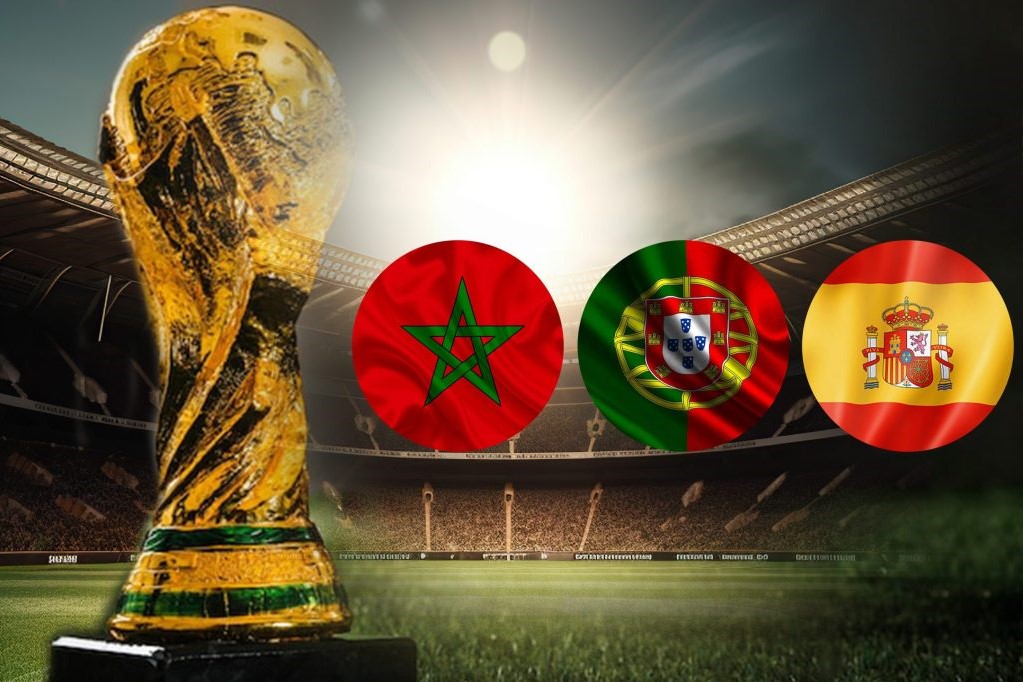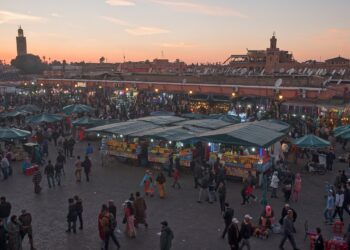With robust investments in infrastructure, talent development, and education, Morocco showcases a multifaceted approach to nurturing both local and international sports excellence. This article explores the divisions within Moroccan sports, highlights prominent sportsmen and women, delves into educational initiatives, and examines Morocco’s standing on the global stage.
Diverse Sports Divisions and Infrastructure
Football reigns supreme in Morocco, with the Botola Pro League leading as the nation’s premier football division. The league comprises 16 teams, with iconic clubs like Wydad AC and Raja CA consistently competing at the top level. Below the Botola Pro, the Botola 2 and regional amateur leagues serve as a fertile ground for discovering new talent.
In addition to football, other sports such as athletics, basketball, handball, and tennis have gained prominence. The Moroccan Athletics Federation (Fédération Royale Marocaine d’Athlétisme) oversees the development of track and field sports, ensuring the country’s representation at major international events like the Olympics and World Championships. Basketball and handball leagues are witnessing a surge in popularity, supported by improved facilities and grassroots initiatives.
Celebrated Sportsmen and Women
Moroccan athletes have made their mark on the global stage, achieving success in various disciplines:
Football
Morocco’s national football team continues to shine after their historic run to the semi-finals of the 2022 FIFA World Cup. Players like Achraf Hakimi and Youssef En-Nesyri remain pivotal figures, inspiring young talents across the nation.
Athletics
Moroccan middle-distance runners have consistently delivered outstanding performances. Soufiane El Bakkali, the Olympic and World Champion in the 3000m steeplechase, remains a global icon.
Women in Sports
Women athletes are gaining recognition, with figures like Rhizlane Siba excelling in high jump and Amina Belkhadir making strides in judo. The growth of women’s football leagues also highlights the nation’s commitment to gender equality in sports.
Educational Initiatives and Talent Development
Education is a cornerstone of Morocco’s sports development strategy. Recognizing the importance of nurturing young athletes, the government has implemented policies to integrate sports into the education system. These initiatives include:
Youth Academies
Football clubs are required to maintain youth academies that focus on both athletic and academic development. The Excellence Cup, introduced in 2024, mandates clubs to include under-23 players in their match squads, providing young talents with invaluable exposure.
Sports Schools
Specialized sports schools and training centers, such as the Mohammed VI Football Academy, offer comprehensive programs that combine academic education with rigorous sports training.
University Partnerships
Collaborations between universities and sports federations ensure that student-athletes receive adequate support to balance their studies and athletic careers.
How to overcome burnout in Morocco: your ultimate 2025 recovery guide
In today's fast-paced world, the pressure to excel professionally can often lead to burnout—a state of emotional, physical, and mental...
Top 5 must-see places in Marrakech this year
Marrakech, often referred to as the "Red City," is a vibrant Moroccan destination known for its rich culture, stunning architecture,...
Creative hobbies in Morocco can enhance your well-being
Engaging in creative hobbies can significantly enhance your well-being, providing a sense of fulfillment and relaxation. In Morocco, a country...
A glimpse into the future of technology in Morocco
Morocco is rapidly embracing cutting-edge technologies, transforming industries and improving the quality of life for its citizens. From artificial intelligence...
Global Presence and Ambitions
Morocco’s efforts to position itself as a global sports destination are bearing fruit. The country’s successful bid to co-host the 2030 FIFA World Cup with Spain and Portugal underscores its growing influence in international sports. Preparations include the construction of a 115,000-seat stadium near Casablanca and upgrades to existing facilities.
The 2025 Africa Cup of Nations (AFCON) will be held in Morocco, marking the nation’s second time hosting the prestigious tournament since 1988. Other notable events include the Women’s Africa Cup of Nations and the U-17 Africa Cup of Nations, further solidifying Morocco’s reputation as a hub for major tournaments.
Beyond hosting events, Moroccan athletes continue to shine internationally. At the 2024 Paris Olympics, the national football team secured a historic bronze medal, while track and field athletes brought home multiple accolades.

Challenges and Opportunities
While Morocco’s sports ecosystem is thriving, challenges remain. These include ensuring equitable access to sports facilities across rural areas, addressing gender disparities, and maintaining a balance between commercial and developmental priorities. However, the government’s continued investment in infrastructure and education provides a solid foundation for overcoming these hurdles.
Conclusion
In 2025, Morocco stands as a beacon of sports excellence, combining tradition with modernity. Through strategic investments, nurturing of young talent, and hosting of major international events, the country is shaping a future where sports not only inspire but also unite its people.
As Moroccan athletes and teams continue to achieve global success, the nation’s commitment to fostering a vibrant sports culture is evident, promising even greater achievements in the years to come.










